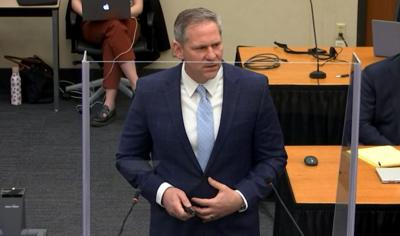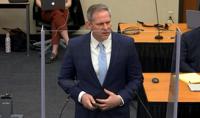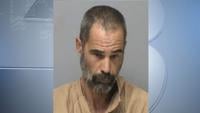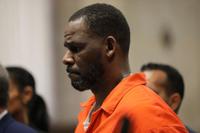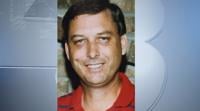UPDATE
Former Minneapolis police officer Derek Chauvin was in connection with the death of George Floyd.
ORIGINAL STORY
MINNEAPOLIS � The Derek Chauvin trial is now in the hands of the jury following closing arguments on Monday.
The prosecution and defense each delivered closing arguments Monday, followed by a rebuttal by the prosecution.
Prosecutor Steve Schleicher said Derek Chauvin "had to know" he was squeezing the life out of George Floyd as the Black man cried out over and over that he couldn't breathe.
The prosecution was first, hoping to convince the jury that Chauvin squeezed the life from George Floyd as he and two other officers pinned him to the street for 9 minutes, 29 seconds, outside a corner market.
Prosecutors say those actions, despite Floyd's repeated cries that he couldn't breathe, were reckless, unreasonable and warrant conviction not just for manslaughter but also on two murder counts.
"You as jurors are not required, nor should you leave your common sense at the courthouse steps," prosecutor Steve Schleicher said. "As jurors you must rely on your common sense. That's why you're here."
"You're not required to accept nonsense," Schleicher continued. "You're not required to accept the notion that after the defendant, kneeling on Mr. Floyd for 9 minutes and 29 seconds, in the dangerous prone position, handcuffed, restrained, pressing down on him, that after that, as he was writhing in pain and suffering, that that's not even a use of force."
Defense attorney Eric Nelson told the jury, "I submit to you that the state has failed to meet its burden of proof beyond a reasonable doubt." He began his closing argument by emphasizing that "the defendant does not have to prove his innocence� He starts at the presumption of innocence."
Nelson went on to build on the judge's definition of "proof beyond a reasonable doubt," saying that it is the highest standard in the law. Nelson said, "As you analyze the evidence in this case, you would simply have to find that any defense that has been advanced was unreasonable. that's what this standard is all about."
Nelson argued that no crime was committed if Chauvin's actions were a reasonable use of force as authorized by law.
"The standard is not what should the officer have done in these circumstances," Nelson said. It's not what could the officer have done differently in these circumstances. The standard is what were the facts known to this officer at the precise moment that he used force, and considering all of the totality of circumstances and facts known to the officer� what would a reasonable police officer have done?"
RELATED:
Nelson focused on Floyd's actions in the minutes before Chauvin knelt on Floyd's body. He showed body-cam footage of those moments.
"The state has really focused on the 9 minutes and 29 seconds," he said. "That's not the proper analysis because the 9 minutes and 29 seconds ignores the previous 16 minutes and 59 seconds. It completely disregards it."
Nelson said, "At the precise moment Mr. Floyd was laid on the ground, a reasonable police officer would know about those 17 minutes. A reasonable police officer would know about the struggle. A reasonable police officer would consider the suspect's reactions to the previous use of force. A reasonable police officer would continue this process of reassessment and a reasonable police officer would consider whether to use an additional level of force to overcome the suspect's level of resistance."
Prosecutor Steve Schleicher said Derek Chauvin "had to know" he was squeezing the life out of George Floyd as the Black man cried out over and over that he couldn't breathe.
The prosecution was first, hoping to convince the jury that Chauvin squeezed the life from George Floyd as he and two other officers pinned him to the street for 9 minutes, 29 seconds, outside a corner market.
Prosecutors say those actions, despite Floyd's repeated cries that he couldn't breathe, were reckless, unreasonable and warrant conviction not just for manslaughter but also on two murder counts.
"You as jurors are not required, nor should you leave your common sense at the courthouse steps," prosecutor Steve Schleicher said. "As jurors you must rely on your common sense. That's why you're here."
"You're not required to accept nonsense," Schleicher continued. "You're not required to accept the notion that after the defendant, kneeling on Mr. Floyd for 9 minutes and 29 seconds, in the dangerous prone position, handcuffed, restrained, pressing down on him, that after that, as he was writhing in pain and suffering, that that's not even a use of force."
The prosecution finished it's closing arguments late Monday morning. The defense started it's closing arguments shortly after.
Chauvin is facing charges 2nd-degree murder, 3rd-degree murder and 2nd-degree manslaughter.
The Associated Press contributed to this report.

